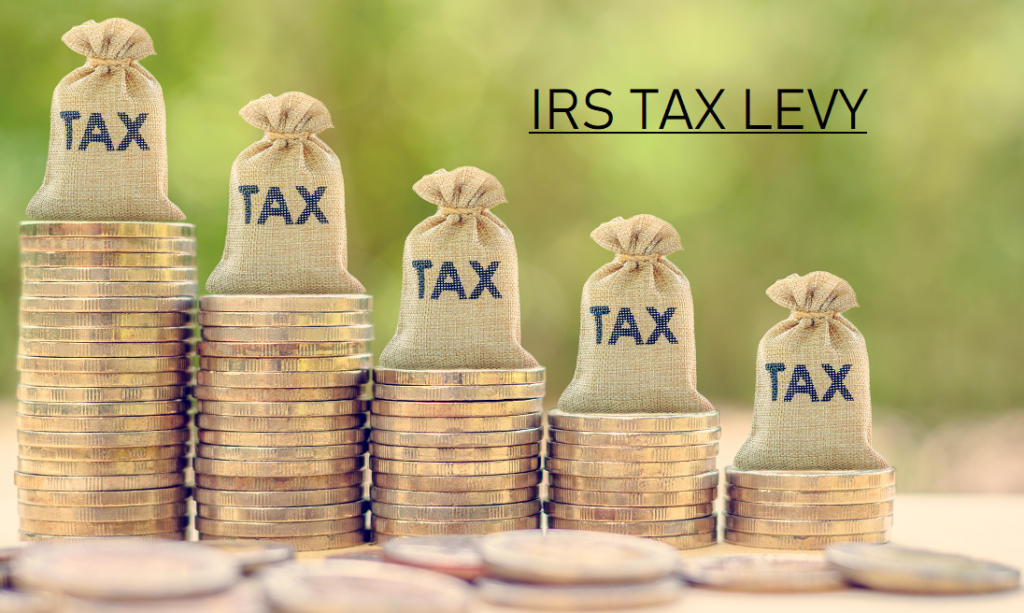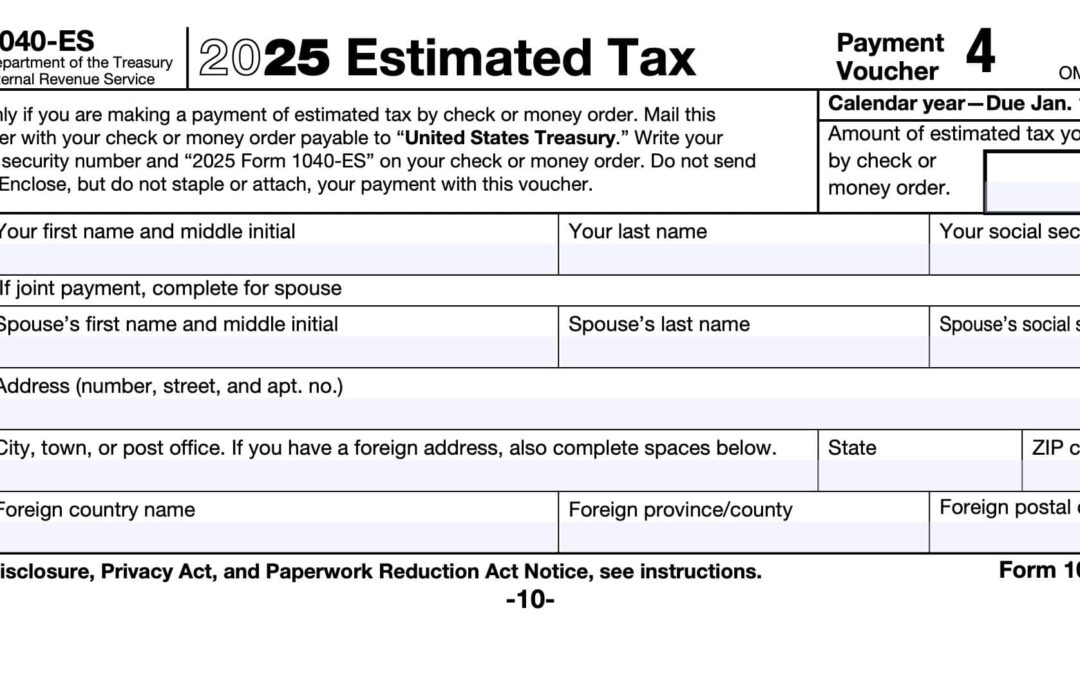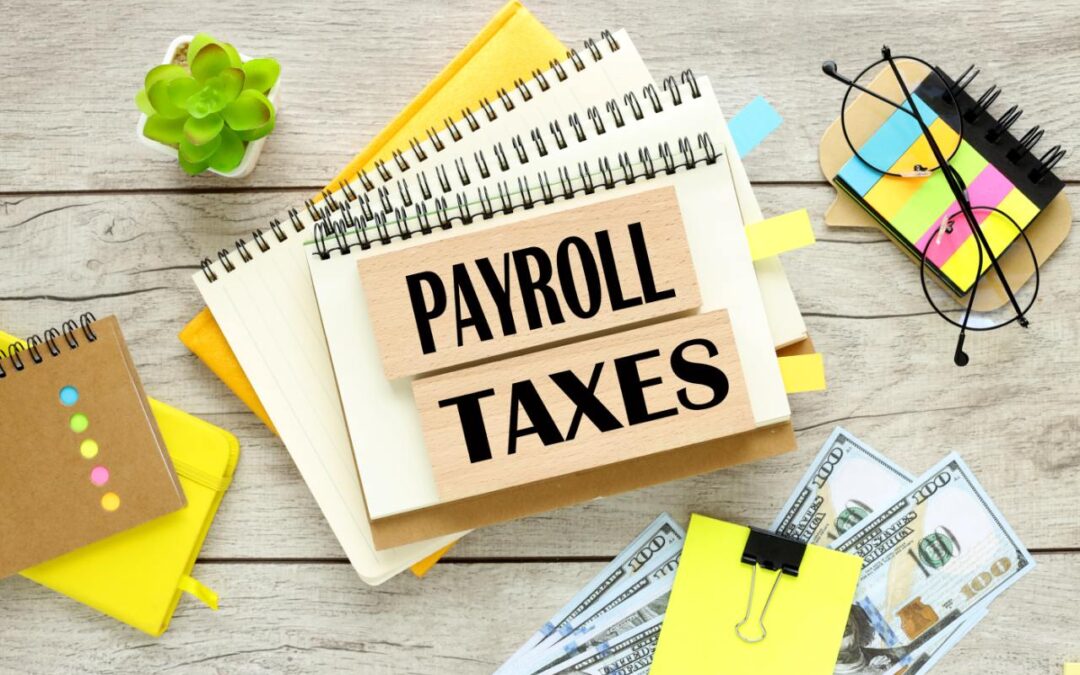
by Renee Lawson | Jan 26, 2026 | Tax Resolution
If your business owes back taxes or you’ve fallen behind on payroll deposits, you may wonder what the IRS will target first. Will they levy your business bank account? Your personal account? Your receivables? Your wages?
Once the IRS decides to enforce collection, they want fast money with minimal effort. Understanding how they prioritize levies can help you protect your business before enforcement hits. If you are concerned about the IRS levying your business, you can contact us at Action Tax Relief by calling 937-268-2737 or visiting www.ActionTaxRelief.com
Why the IRS Issues Levies
A levy allows the IRS to seize assets without going to court. They levy only after:
- The tax is assessed
- Multiple notices go unanswered
- A Final Notice of Intent to Levy (LT11 or Letter 1058) is issued
- You fail to resolve the matter within 30 days
By this stage, the IRS assumes you’re unwilling or unable to pay voluntarily, and they move to collect.
Priority #1: Bank Accounts (Business and Personal)
The IRS almost always starts with bank accounts because they provide immediate cash.
Why bank accounts are their first choice:
- They require almost no effort to levy
- They provide real dollars, right now
- They avoid the hassle of seizing physical property
- They can attach to both business and personal accounts
If you owe payroll taxes, trust fund taxes, or back business returns, both your corporate accounts and personal accounts may be levied, especially if the IRS is pursuing a Trust Fund Recovery Penalty (TFRP) against you.
Bank levies freeze the money in the account on the day the levy hits. You have 21 days to contest it or negotiate before the funds are sent to the IRS. But if you do nothing, your cash is gone.
Priority #2: Accounts Receivable (Your Clients’ Payments)
Next, the IRS often levies accounts receivable, redirecting customer payments straight to the IRS. This is one of the most damaging actions the agency can take because it instantly cuts off revenue. For businesses already struggling, an AR levy can halt operations overnight.
Priority #3: Wages and Personal Income
When individuals (owners, officers, shareholders, responsible persons) owe back taxes, or have been assessed TFRP, the IRS may levy wages or salary.
A wage garnishment is continuous, meaning:
- It stays on every paycheck
- It lasts until the debt is satisfied or a resolution is reached
- It can take 70%–100% of disposable income depending on filing status
Unlike bank levies (which are one-time), wage garnishments repeat automatically. This makes them an incredibly effective pressure tactic.
For business owners who take a W-2 from their own company, the IRS can garnish their pay the same as any employee.
Priority #4: Merchant Accounts and Third-Party Payments
If you’re paid through Stripe, PayPal, Square, Shopify, Amazon, or similar platforms, the IRS can levy those merchant accounts too. Because these systems process money daily, a levy can choke off revenue fast.
Priority #5: Business Equipment and Physical Assets
Contrary to popular belief, the IRS does not want to seize physical property. It’s time-consuming, expensive, requires storage, and often results in far less value than expected.
However, they will seize vehicles, machinery, tools, office equipment and inventory if they feel the business is ignoring them or acting in bad faith.
Asset seizures usually occur later in the collection process or when the IRS believes the business is intentionally avoiding payment.
Priority #6: Real Estate
Real estate is last on the list because:
- It requires court approval
But it does happen, especially when payroll taxes or large liabilities are involved, or when a responsible person has significant equity in a home or rental property.
The IRS will file a federal tax lien long before a seizure occurs, but a lien is the first step toward that possibility.
Why Some Owners Get Hit Faster Than Others
The IRS considers:
- Whether payroll (trust fund) taxes are involved
- Whether a Revenue Officer is assigned
- A pattern of non-response
- Whether assets are being moved
- Previous compliance history
Payroll tax debts trigger the fastest and most aggressive enforcement.
Final Thoughts
A levy isn’t the starting point; it’s the end of a long series of ignored notices. Once levies begin, your options shrink dramatically.
If you’re behind on payroll taxes or worried about a levy hitting your business bank account, receivables, or wages, contact Action Tax Relief to schedule a confidential consultation by calling 937-268-2737 or visiting www.ActionTaxRelief.com today. We’ll intervene with the IRS, protect your assets, and negotiate a plan that keeps your business functioning before the IRS decides what to take next.

by Renee Lawson | Jan 19, 2026 | Tax Preparation, Tax Resolution
If you’re self-employed, a high earning W-2 employee with little or no withholding, an independent contractor, a gig worker, or someone who regularly owes at tax time, estimated taxes aren’t optional, they’re a requirement. Yet every year, millions of taxpayers skip or fall behind on their quarterly estimated payments.
Most people don’t do this intentionally. Life happens. Income fluctuates. Bills pile up. Or maybe you just didn’t realize you were required to make estimated payments in the first place.
But here’s the truth, failing to file and pay estimated taxes can quietly snowball into crushing tax debt, and put you squarely in the IRS’s enforcement crosshairs.
This is one of the most common reasons people end up needing tax resolution help. Let’s break down the hidden dangers so you know what to watch out for and how to protect yourself moving forward. If after reading this blog you still have questions, contact us at Action Tax Relief by calling 937-268-2737 or visiting www.ActionTaxRelief.com.
1. The Penalties Add Up Faster Than You Think
When you don’t make required estimated tax payments, the IRS charges two major penalties, and they compound:
• Failure to Pay Penalty
This penalty accrues monthly until the balance is paid in full. Many taxpayers are shocked when they discover how large this penalty has grown after just a few missed quarters.
• Underpayment Penalty
Even if you do pay your taxes when you file your return, you may still get hit with an underpayment penalty if you didn’t pay enough throughout the year.
And here’s the kicker, both penalties are stacked on top of the interest the IRS charges daily.
Failure to file estimated taxes is like putting your tax debt on a high interest credit card you never signed up for.
2. Falling Behind Once Makes It Easier to Fall Behind Again
Taxpayers rarely fall behind for just one quarter. Once you start the cycle, it becomes harder to break:
- You owe money for the current year
- You need to start making estimated payments for the next year
- You still have everyday bills and living expenses
- The IRS keeps adding penalties and interest
Very quickly, it becomes impossible to catch up on your own.
Many clients tell us they thought they could “pay it off next year.” But when next year comes, they owe even more, and the overwhelm spirals.
3. Your Income May Trigger IRS Scrutiny
If you’re self-employed or a contractor, the IRS expects estimated taxes.
Failing to pay them can trigger:
- Referral to IRS Collections sooner than expected
This doesn’t mean you did anything wrong, it simply means the IRS views missed estimated payments as a sign you may have unpaid tax liabilities.
4. The IRS Can Introduce Aggressive Collection Actions
Once the IRS processes your return and sees unpaid tax, the collection machine begins moving, whether you’re ready or not. Missed estimated payments often lead to:
- Levies on bank accounts and wages
- Passport restrictions for seriously delinquent tax debt
- Enforced collection if you don’t respond in time
Most taxpayers have no idea how fast this process moves until the IRS is already dipping into their paycheck or freezing their bank account.
5. You May Miss Out on Opportunities to Reduce What You Owe
The IRS offers several programs that may reduce or resolve your tax debt if you qualify, including:
- Partial pay installment agreements
- Currently Not Collectible (CNC) hardship status
- Offers in Compromise (settling your tax debt for less than you owe)
But many taxpayers never learn about these options until it’s too late or until they make mistakes responding to the IRS on their own.
6. Doing Nothing Only Makes the Problem Worse
Ignoring estimated taxes doesn’t just create a one-time problem, it becomes a multiyear financial trap. But you don’t have to face it alone.
Thousands of taxpayers regain control every year by hiring a qualified tax resolution professional who deals with the IRS on their behalf, protects their assets, and negotiates the lowest possible resolution allowed by law.
Whether you missed one quarter or several years, you’re not alone, and you’re not beyond help. The worst thing you can do is let fear or embarrassment keep you from getting the relief you need.
You don’t have to keep looking over your shoulder. Contact Action Tax Relief today for a confidential, no obligation consultation by calling 937-268-2737 or visiting www.ActionTaxRelief.com.
Let’s review your situation, explain your options, and create a plan to resolve your tax debt once and for all. Your peace of mind starts with one call.

by Renee Lawson | Dec 15, 2025 | Tax Preparation, Tax Resolution
If you’re a small business owner behind on payroll taxes, you’re not alone. Most fall behind due to cash-flow issues or tough decisions made under pressure. But payroll tax debt escalates quickly.
Because payroll taxes include money withheld from employees—“trust fund” taxes—the IRS treats them as highly serious and moves fast to collect.
The good news: with the right representation, you can protect your business and resolve the problem.
This article explains what happens when you owe payroll taxes, how the IRS responds, and what you can do before the situation becomes critical. If you have any questions after reading this you can contact Action Tax Relief by calling 937-268-2737 or by going to www.ActionTaxRelief.com.
Why Payroll Taxes Are So Serious
When you withhold Social Security, Medicare, and federal income taxes from employees, the IRS views that as money you’re holding in trust for them. If those deposits aren’t made on time, the IRS treats it as if the government was deprived of its money—intentionally.
To the IRS, this is no longer just a tax issue. It’s a compliance failure.
And because payroll tax shortages usually signal broader financial distress—cash-flow shortages, declining sales, borrowing from payroll to pay vendors—the IRS sees it as a business and taxpayer at risk.
The IRS Responds Fast – Much Faster Than With Income Taxes
If you owe back 941 payroll taxes, the timeline can escalate faster than almost any other tax issue.
Here’s what typically happens:
1. You Miss a Deposit Deadline
Even one missed deposit can cause the IRS to flag your account. If you miss multiple deposits, the IRS system automatically triggers notices.
2. IRS Letters Start Arriving
This usually begins with notices showing the missed deposit, accrued penalties, and interest. These penalties are some of the highest in the tax code—up to 15% just for missing the deposit deadline.
3. The IRS Assigns a Revenue Officer (RO)
When payroll taxes are not paid for multiple quarters, your case often gets assigned to a Revenue Officer—an IRS field collection agent with significant authority.
When that happens, the matter becomes serious. Revenue Officers will:
- Show up at your business unannounced
- Request extensive financial records
- Interview you and key employees
- Demand immediate payment or a plan
- Move quickly to enforce collection if you don’t respond
4. The Trust Fund Recovery Penalty (TFRP) Investigation Begins
This is the biggest surprise many business owners face.
If payroll trust fund taxes weren’t paid, the IRS can personally assess the Trust Fund Recovery Penalty (TFRP) against any responsible individual—including owners, officers, shareholders, check-signers, or anyone with authority over finances.
This means the IRS can collect the trust fund portion of the debt from your personal assets—your bank accounts, wages, retirement accounts, even your home in extreme cases.
You’ll be asked to sit for a Form 4180 interview. What you say in that interview will determine whether you are personally assessed tens or hundreds of thousands of dollars in penalties.
5. IRS Levies and Liens Can Happen Quickly
If you don’t respond—or you miss deadlines—the IRS can take immediate steps to collect:
- Levy business bank accounts
- Seize accounts receivable
- Garnish your personal or business wages
- Shut down merchant accounts
- In rare cases, seize business assets
A payroll tax case can move from “late deposit” to “levy action” in a matter of weeks or months.
Most employers don’t fall behind because they’re reckless. It usually happens because:
- A major expense hit unexpectedly
- A recession or downturn crushed cash flow
- You kept employees on payroll longer than you should have
- You were trying to save the business during a rough patch
But the IRS doesn’t consider these mitigating circumstances. Payroll taxes are considered a fiduciary duty. From their perspective, once you fall behind, you’re a risk that needs immediate intervention.
That’s why you need someone protecting you from the very first letter.
Don’t Wait – Payroll Tax Problems Get Worse, Not Better
If you’re behind on payroll taxes—even one quarter—you are in one of the highest-risk categories in the eyes of the IRS. The longer the problem goes unaddressed, the fewer options you have and the more aggressive the IRS becomes.
But with expert help, the situation is absolutely manageable.
If your business owes payroll taxes—or you’ve received notices, a visit from a Revenue Officer, or a Trust Fund Recovery Penalty letter contact Action Tax Relief at www.ActionTaxRelief.com or call 937-268-2737 to schedule a consultation with an experienced tax resolution specialist.
We’ll protect your business, negotiate with the IRS, and design a resolution strategy that helps you move forward with confidence. Your business—and your peace of mind—are worth it.

by Renee Lawson | Dec 8, 2025 | Tax Preparation, Tax Resolution
When you fall behind on your taxes, the notices, penalties, and IRS pressure can escalate fast. A financial setback, medical issue, or unexpected emergency is often all it takes to get behind—and once collections start, many taxpayers feel they have nowhere to turn.
Most people believe their only options are to fully repay the balance or hope they qualify for an Offer in Compromise (OIC). But the IRS has another option—one they rarely highlight—that can provide real relief: the Partial Payment Installment Agreement (PPIA).
A PPIA lets you make affordable monthly payments even if those payments won’t pay off the full balance before the IRS’s 10-year collection statute expires. When that deadline hits, the remaining debt is forgiven. It’s a middle ground between a standard installment agreement and an OIC—without the strict qualification rules.
At Action Tax Relief we have experience negotiating partial pay installment agreements for our clients. If you need help negotiating a PPIA with the IRS you can contact us at www.ActionTaxRelief.com or call 937-268-2737.
What Is a Partial Payment Installment Agreement?
A Partial Payment Installment Agreement is a payment plan where you agree to pay a reduced monthly amount that will not fully pay your balance before the IRS’s time to collect (the 10-year CSED) expires. After that deadline, the IRS legally must stop collecting, and the unpaid portion of your tax debt disappears.
This makes a PPIA a lifeline for taxpayers who cannot afford the higher payment required under a normal installment agreement and who may not qualify for an Offer in Compromise.
Why the IRS Offers This Option
The IRS knows that some taxpayers simply cannot pay their full balance—ever. Taking all their income or forcing asset liquidation isn’t always realistic and can push individuals into financial hardship.
A PPIA allows the IRS to:
- Collect something rather than nothing
- Avoid forcing taxpayers into bankruptcy
- Keep individuals compliant going forward
- Reduce the administrative burden of aggressive enforcement
In short, a PPIA is the IRS’s way of acknowledging that full collection may be impossible.
Who Qualifies for a PPIA?
A PPIA is ideal for individuals who:
- Cannot full-pay the total tax balance before the statute expires
- Cannot afford the monthly payment required under a normal installment agreement
- Do not qualify for an Offer in Compromise
- Have limited income or high allowable living expenses
- Have minimal assets or equity
- Would experience financial hardship if forced to pay more
To evaluate eligibility, the IRS analyzes:
- Necessary living expenses
- Equity in assets (home, cars, investments, etc.)
- Current and future ability to pay
The IRS’s goal is to determine your reasonable collection potential (RCP)—a calculation of what you can realistically afford each month.
How the IRS Calculates Your Monthly Payment
The IRS uses strict financial guidelines to figure out your required monthly payment. They consider:
- Your allowable expenses (which are capped by IRS standards)
- Your projected ability to pay over time
A tax resolution specialist can help ensure:
- All allowable expenses are counted
- Your assets are valued properly
- Your income is analyzed correctly
- You are not forced into a payment you cannot sustain
Without representation, people often agree to payments that are far too high.
The IRS Re-Evaluates PPIAs Every Two Years
Once approved, a PPIA is not “set and forget.” The IRS reviews your financial situation every two years to determine whether:
- Your payment should increase
- Your situation has worsened
- The agreement should continue as is
These reviews can be stressful without a professional defending your numbers, especially if your income increases.
Why a PPIA Can Be Life-Changing
A Partial Payment Installment Agreement can dramatically ease the burden of IRS debt because your monthly payment is based on what you can truly afford—not the total amount you owe. This protects your income and savings while giving you a realistic path forward. Once a PPIA is in place, levies and garnishments stop, allowing you to rebuild financially without constant IRS pressure. And since any remaining balance is forgiven when the collection statute expires, many taxpayers end up paying far less than their total debt. For individuals facing large balances and limited resources, a PPIA is often the most practical alternative to bankruptcy and one of the few options that provides long-term relief without financial devastation.
Final Thoughts
If you owe IRS tax debt and cannot afford to pay it in full, a Partial Payment Installment Agreement may be the relief you’ve been searching for. Our tax resolution firm can determine whether you qualify, negotiate directly with the IRS, and secure the lowest possible payment so you can finally move forward.
Contact Action Tax Relief at www.ActionTaxRelief.com or call 937-268-2737to schedule a confidential consultation today.

by Renee Lawson | Nov 3, 2025 | Tax Preparation, Tax Resolution
When you file a joint tax return with your spouse, you’re both saying to the IRS: We’re in this together. That means both of you are jointly and severally liable for any tax owed—even if the unpaid balance, errors, or fraud were entirely your spouse’s doing.
It’s one of the most misunderstood and frightening parts of the tax code. Imagine finding out years later that your ex (or soon-to-be ex) underreported income or claimed fake deductions—and now the IRS wants to collect from you.
The good news? The tax law gives you a way out, known as Innocent Spouse Relief. This powerful but complex program can protect you from paying taxes, interest, and penalties caused by your spouse’s (or former spouse’s) wrongdoing. If you qualify, the IRS can legally remove your liability—freeing you from a tax mess you didn’t create.
Let’s unpack what it is, how it works, and how a tax resolution professional can help you navigate it successfully. And if you have any questions after reading this you can contact Action Tax Relief by calling 937-268-2737 or by going to www.ActionTaxRelief.com.
What Is Innocent Spouse Relief?
Innocent Spouse Relief is part of IRC §6015, designed for people who filed joint returns but shouldn’t be held responsible for a spouse’s errors or fraud.
It comes in three forms:
- Innocent Spouse Relief (§6015(b)) – You didn’t know, and had no reason to know, of an understatement on the joint return.
- Separation of Liability Relief (§6015(c)) – You’re divorced, legally separated, or no longer living with your spouse, and want to separate your share of tax.
- Equitable Relief (§6015(f)) – When the first two don’t fit, but fairness says you shouldn’t be held liable.
Each has unique requirements, but they all aim to prevent you from being punished for a spouse’s wrongdoing.
Why Joint Liability Can Be So Dangerous
The IRS doesn’t care who earned the income or made the mistake. When you file jointly, they can pursue 100% of the debt from either spouse.
If your spouse has:
- Claimed bogus deductions, or
- Failed to pay self-employment or investment taxes
The IRS can levy your bank account, garnish wages, or seize refunds, even if you were completely unaware. That’s why Innocent Spouse Relief can be life-changing.
Who Qualifies?
To qualify for Innocent Spouse Relief, you generally must show that:
- You filed a joint return with an understatement of tax due to your spouse’s erroneous items,
- You didn’t know or have reason to know about it, and
- It would be unfair to hold you liable.
For Separation of Liability Relief, you must be divorced, legally separated, widowed, or living apart for at least 12 months.
Equitable Relief covers cases where abuse, control, or other hardships make liability unfair. The IRS looks at:
- Whether you were abused or coerced,
- Whether you benefited from the unpaid tax, and
- Whether you tried to fix the problem once discovered.
Every case is fact-specific, and documentation matters.
How to Apply
You request relief by filing Form 8857, Request for Innocent Spouse Relief.
After filing, the IRS must notify your spouse or ex-spouse, giving them a chance to respond (though your address is kept private).
The review process can take six months to two years. If denied, you can appeal within 30 days or take your case to the U.S. Tax Court.
Common Real-Life Scenarios
- Hidden Income: Your spouse ran a side business and didn’t report the income.
- Fake Deductions: You didn’t know they made up business or charitable expenses.
- Abuse or Coercion: You were pressured to sign the return under duress.
- Divorce Surprise: You discover after separation that taxes weren’t paid years earlier.
In all these cases, Innocent Spouse Relief may wipe out the IRS debt or shift responsibility solely to your spouse.
Why Work With a Tax Resolution Professional
Filing Form 8857 isn’t as simple as sending paperwork—it’s a legal and strategic process. You must prove your lack of knowledge and fairness under IRS standards.
A qualified tax resolution expert can:
- Identify which relief option fits best,
- Build your case with evidence and statements,
- Communicate with the IRS so you don’t have to, and
- Protect you from collection actions while your case is pending.
If full relief isn’t possible, a professional can explore other options such as an Offer in Compromise or Currently Not Collectible status.
The Bottom Line
No one should pay for someone else’s tax mistakes—especially if you were deceived or kept in the dark. Innocent Spouse Relief exists to restore fairness and give you a fresh start.
If you’ve received IRS notices tied to your spouse’s tax debt or divorce, don’t ignore them. The longer you wait, the harder it becomes to fix—and there are strict time limits for requesting relief.
Need Help?
If you believe you qualify for Innocent Spouse Relief, or you’re unsure how to respond to an IRS letter, we can help.
Our firm specializes in tax resolution and IRS representation, guiding clients through Innocent Spouse, Offer in Compromise, and other relief programs every day.
We’ll review your case, explain your options, and fight to protect your financial future. Contact Action Tax Relief at www.ActionTaxRelief.com or call 937-268-2737 to schedule a consultation with an experienced tax resolution specialist.
You don’t have to face the IRS—or your spouse’s tax problems—alone.

by Renee Lawson | Oct 20, 2025 | Tax Preparation, Tax Resolution
Cryptocurrency has gone from niche hobby to mainstream investment in just a few short years. Millions of Americans now buy, sell, and trade digital assets like Bitcoin, Ethereum, and countless altcoins. But along with explosive growth in crypto markets comes a less glamorous reality: the IRS wants its share of your profits—and it’s getting better at finding out when you haven’t paid.
If you’ve traded crypto and failed to report your gains, or if you’re unsure whether you calculated your taxes correctly, you could be facing back taxes, penalties, and interest. The good news? With the right strategy and timely action, you can resolve crypto-related tax issues before they spiral out of control.
In this blog we will discuss what you need to know about how the IRS treats cryptocurrency and what steps to take if you owe back taxes on crypto gains. At Action Tax Relief we specialize in helping businesses and individuals in resolving their tax debt. You can contact us at www.ActionTaxRelief.com or call 937-268-2737.
How the IRS Views Cryptocurrency
First, it’s important to understand the IRS’s position: cryptocurrency is treated as property, not currency, for federal tax purposes. This classification has been in place since IRS Notice 2014-21, and it means that every time you sell or exchange crypto—whether for U.S. dollars, another cryptocurrency, or goods and services—you trigger a capital gain or loss.
Key implications:
- Capital Gains Taxes: If you sell crypto for more than you paid, you realize a capital gain. Short-term gains (held for one year or less) are taxed at ordinary income rates, while long-term gains enjoy lower capital gains rates.
- Capital Losses: Losses can offset other gains and up to $3,000 of ordinary income annually.
- Income from Mining or Staking: Rewards earned through mining, staking, or airdrops are treated as ordinary income at their fair market value when received.
This means crypto activity can create multiple taxable events throughout the year—not just when you “cash out” to fiat currency.
How the IRS Is Tracking Crypto Activity
Some investors assume crypto is anonymous and hard to trace. That’s no longer true. The IRS has ramped up enforcement significantly:
- Exchange Reporting: Major U.S.-based exchanges (like Coinbase, Kraken, and others) issue Form 1099 to the IRS and account holders for certain transactions.
- Blockchain Analysis: The IRS partners with blockchain analytics firms to track transactions on public ledgers.
- Tax Return Question: Every individual tax return now asks whether you engaged in any digital asset transactions during the year.
The IRS’s message is clear: crypto transactions are visible, and failing to report them can lead to serious trouble.
Common Reasons People Owe Back Taxes on Crypto Gains
Crypto taxes can get complicated fast, and even well-intentioned investors can end up with a tax bill. Some common scenarios include:
- High Volume Trading: Day trading crypto across multiple exchanges can generate hundreds or thousands of taxable events—easy to underreport.
- Failure to Track Cost Basis: Without accurate records of purchase price and dates, it’s difficult to calculate gains or losses correctly.
- Not Reporting Mining or Staking Rewards: These are treated as income when received and can create tax obligations even if you don’t sell the coins.
- Price Volatility: Selling crypto after a big run-up may result in large taxable gains, even if the market crashes later.
If you’ve made any of these mistakes, you may already owe the IRS back taxes.
Consequences of Owing Crypto-Related Back Taxes
The IRS treats unpaid crypto taxes the same way it treats any other unpaid taxes. Possible consequences include:
- Penalties and Interest: Failure-to-file and failure-to-pay penalties can add up quickly, along with daily interest charges.
- Tax Liens and Levies: If you don’t address your balance, the IRS can file a federal tax lien against your property or levy (seize) your bank accounts, wages, or other assets.
- Criminal Charges in Extreme Cases: Deliberate tax evasion—such as hiding crypto holdings—can lead to criminal prosecution.
The longer you wait, the more severe and costly these consequences become.
Steps to Take if You Owe Back Taxes on Crypto Gains
If you discover or suspect that you owe taxes on your cryptocurrency activities, here are the steps to take:
1. Gather All Transaction Records
Collect data from every exchange or wallet you’ve used, including trade histories, purchase dates, amounts, and fees. Tools such as crypto tax software can help consolidate this information.
2. Calculate Your Tax Liability
You’ll need to determine your cost basis and capital gains or losses for each transaction. If you’ve received mining or staking rewards, calculate the fair market value when received.
3. File or Amend Your Tax Returns
If you failed to report crypto transactions on previous tax returns, file amended returns (Form 1040-X) for those years. This is often a critical step in demonstrating good faith to the IRS.
4. Pay What You Can
Paying the full amount immediately will stop penalties from accruing. If you can’t pay in full, send as much as possible to reduce interest and penalties.
5. Explore IRS Resolution Options
The IRS offers programs to help taxpayers resolve back taxes, including:
- Installment Agreements: Monthly payment plans that spread out your tax debt.
- Offer in Compromise (OIC): Settle your debt for less than the full amount if you qualify.
- Currently Not Collectible Status: If you’re in financial hardship, the IRS may temporarily suspend collection.
A tax resolution professional can help you evaluate which option fits your circumstances.
6. Respond Promptly to IRS Notices
If you’ve received IRS letters regarding unreported crypto income or unpaid taxes, respond immediately. Ignoring notices will only escalate the problem.
How to Stay Compliant Going Forward
Once you’ve addressed your back taxes, put systems in place to avoid future problems:
- Use Reliable Crypto Tax Software: Track every transaction throughout the year.
- Keep Detailed Records: Maintain records of purchase prices, dates, and any fees.
- Make Estimated Tax Payments: If you trade frequently, consider quarterly estimated payments to avoid surprises at tax time.
- Consult a Tax Professional: Work with a CPA or tax resolution specialist experienced in cryptocurrency taxation.
Don’t Wait for the IRS to Catch Up
Crypto is no longer the Wild West. The IRS has the tools and partnerships to track digital asset transactions, and enforcement is increasing each year. If you owe back taxes, it’s far better to come forward voluntarily than to wait for the IRS to contact you. Voluntary disclosure often results in reduced penalties and demonstrates good faith.
Final Thoughts
The IRS treats cryptocurrency just like other property—and failing to report your gains can lead to significant back taxes, penalties, and potential legal action. Whether you traded Bitcoin once or are an active DeFi participant, the time to address unreported crypto gains is now.
Need Professional Help With Crypto-Related Tax Debt?
Action Tax Relief specializes in helping individuals and businesses resolve tax debt—including issues related to cryptocurrency gains. Contact us at 937-268-2737 or visit our contact page at www.ActionTaxRelief.com to schedule a confidential consultation and take the first step toward putting your crypto tax problems behind you.






